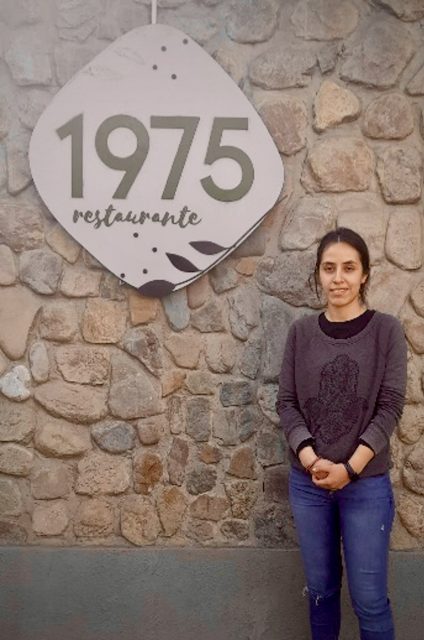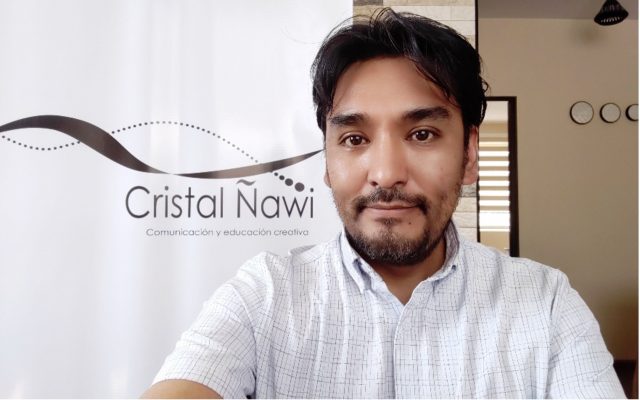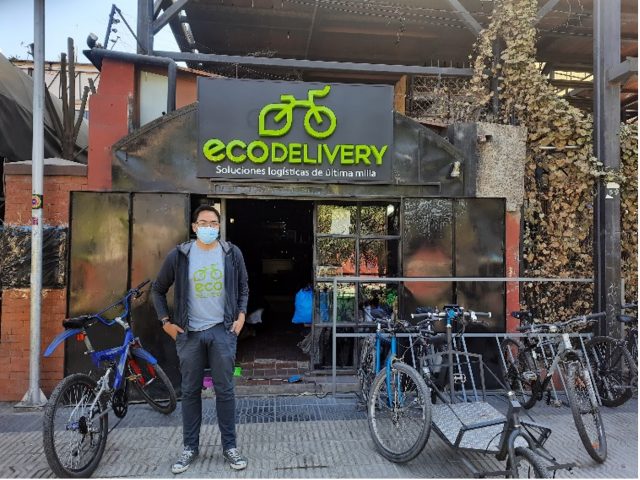The creative economy, otherwise known as the “orange economy,” is a rapidly growing sector, especially in Latin America and the Caribbean (LAC). However, it lacks official data and faces significant bureaucratic red tape, creating obstacles for creative entrepreneurs. In this third edition of a series of articles that approach the creative economy in the LAC region, we share CIPE’s experience expanding its creative economy programming to Bolivia in 2021. CIPE collaborates with the Center for Studies of Economic and Social Reality (CERES), a research and development non-governmental organization (NGO) in Cochabamba, to better understand the potential of this dynamic sector and the necessity of collecting data to measure its growth in the country. This program is an extension of the last five years of work, during which CIPE collaborated with local partners to help communities and governments in the region leverage and appreciate the impact and growth potential of creative entrepreneurs.
In late 2023, CERES, with CIPE’s support, launched a report, entitled Economía Creativa en Bolivia, about the creative economy in Cochabamba, Bolivia. The report analyzes the national and local economy, relevant legislation, barriers to entry for creative entrepreneurship, and provides expansive policy recommendations. Among the key recommendations, CERES emphasizes that local and national policies should incorporate innovation, creativity, and a “diversity of options through competition” within the education system; promote philanthropy opportunities to support creative entrepreneurs “that are often high risk for financial institutions;” and simplify bureaucratic procedures to increase formal ventures.
As part of the Economía Creativa en Bolivia report, CERES, through their partner the Franz Tamayo University’s (UNIFRANZ) Institute for Economic and Entrepreneurial Progress (IPEE), interviewed local creative entrepreneurs to understand the challenges to enter the creative economy in Cochabamba. The following stories of local creative entrepreneurs are adapted and translated from the original Economía Creativa en Bolivia report.
Daniela Céspedes Murillo
 Daniela Céspedes Murillo is the founder of 1975 Restaurante (“1975 Restaurant”), a restaurant in Cochabamba.
Daniela Céspedes Murillo is the founder of 1975 Restaurante (“1975 Restaurant”), a restaurant in Cochabamba.
I am Daniela Céspedes Murillo, a business administrator, and I am 31 years old. My parents have always been in the gastronomy business, starting in the city of La Paz. They started with their first restaurant, then they came to live here, to Cochabamba, and continued with the restaurants.
In 2019, we came up with the idea to make a restaurant that was a little different, and in 2020, we had planned to open the business, but the arrival of Covid-19 halted the project, which was already halfway through. We already had the equipment.
We did not change our direction, instead we waited for the pandemic to pass. We had to open with all the restrictions that were in place because we had not been operating for long.
In July 2021, we finally opened the restaurant.
We wanted to be different by offering something that is not commonly found in Cochabamba. We searched for talent and found a group of young chefs with whom we created a unique concept. Then, the restaurant began to take shape, and we decided to give it a twist with national products and ingredients. The signature cuisine does not limit, but rather gives a broad vision of what we could do, because the signature cuisine is whatever the chef has learned and put his touch on. We wanted to take advantage of the organic and national products to bring new value to them with traditional techniques, to introduce to the new generations. Something that also distinguishes us is the constant innovation; our menu does not stay the same for long. I believe it is these innovative and creative concepts that make us different.
Daniela shared that as the restaurant accesses its goods from small producers that do not issue invoices, this complicates the tax discharge of these purchases, as they do not have documentation to justify their sales amount. She believes the Bolivian government should invest more in the gastronomy sector, educating and training professionals in high-level gastronomy, to promote Cochabamba as the Gastronomic Capital of Bolivia.
Ariel Montaño Montaño
 Ariel Montaño Montaño is the founder of Cristal Ñawi Producciones (Cristal Ñawi Productions), a communications company that focuses on audiovisual production, communications, and creative education in Cochabamba.
Ariel Montaño Montaño is the founder of Cristal Ñawi Producciones (Cristal Ñawi Productions), a communications company that focuses on audiovisual production, communications, and creative education in Cochabamba.
My name is Ariel Montaño Montaño, I have a degree in Social Communications. When I was a student, we created, along with some colleagues, a small informal company, “Cristal Ñawi Producciones,” which was dedicated to the production of a provincial cultural news broadcast in the Cercado, Valle Alto and Valle Bajo of Cochabamba, this program was called: “Llajtanchismanta Pacha” (From our People).
Little by little, the members of this initiative decided to leave the project. However, I saw great potential in the production of materials, not only audiovisual, but also in other areas of communication and education. Around 2010, I decided to formalize the company, changing the focus a little bit. It is from there that the company Cristal Ñawi, Comunicación y Educación Creativa was started.
Ariel mentions that the pandemic forced societies to access and utilize digital media and platforms, increasing consumption of multimedia materials. As such, the company has adapted and developed technological skills to meet the needs of its customers, highlighting the flexibility and innovation that creative entrepreneurs bring to societies.
Among the challenges that creative entrepreneurs face in Cochabamba, Montaño emphasizes the impact of high tax rates. He explains that this makes services more expensive, which may lead to institutions hiring informal companies. He emphasizes that these taxes create barriers for companies to formalize and legally enter the labor market, as well as reduce employment and overall profitability for both informal and formal, legal companies. Montaño believes that reducing tax rates would help generate more employment and profitability, as well as increase the formality of companies and the labor market.
Miguel Fernández
 Miguel Fernández is the founder of Ecodelivery, a delivery service within Cochabamba that uses environmentally friendly transportation modes, like bikes and scooters.
Miguel Fernández is the founder of Ecodelivery, a delivery service within Cochabamba that uses environmentally friendly transportation modes, like bikes and scooters.
My name is Miguel Fernández, I am an environmental engineer, I have a master’s in business, innovation and entrepreneurship. We launched Ecodelivery on the first Sunday of 2017, on “Pedestrian Day.”
The idea behind the delivery started with the goal of showing electromobility, of changing the energy matrix by starting to use it locally.
Our business is basically logistics and electromobility. Now, what we do is last mile logistics, and we are purely oriented to business-to-business (B2B). We attempt to use normal bikes, electric bikes, scooters, cargo bikes—all cargo bikes have engines that help to carry weight.
Ecodelivery is a small company that employs 30 people. Miguel looks for people with motivation to work and who are looking for development opportunities. To support staff development, Fernández promotes training, “giving [staff] the opportunity to continue learning. This helps the people who work to be able to develop in some way, and it helps us reduce rotation issues and be able to work with more stable people committed to the same company.”
Fernández recognizes that a small company like Ecodelivery allocates smaller amounts of its revenue towards salaries, focusing more on reinvesting it in the company: “In my case, I’ve been working for 10 years. So, the issue of experience could be better paid in a conventional company. However, I understand that this is also a matter of growth, and everything we’ve earned has been reinvested. So, perhaps we could have raised wages, but we would have been smaller.”
To read more about the creative economy in Bolivia, please find the full Economía Creativa en Bolivia report here with English excerpts available.
Published Date: January 17, 2024
